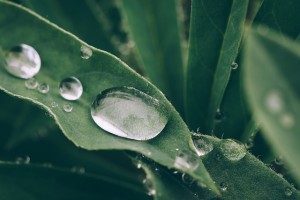I wouldn’t be surprised, that
is more than likely, there’s every chance of
that ![]()
[Dutch phrase of the week]

"Dik" usually means "thick" or "fat", but it can also mean "ample"
or "good", as in "we zitten hier al een dik uur te wachten" ("we have
been waiting here for a good hour"). One uses "dat/het zit er dik in"
when something is an obvious consequence, or was expected to happen.
There are many expressions with "dik", see below for another two.
Examples:
– "De trein had vertraging en nu heeft Frank
dus ook het vliegtuig gemist!" – "Ja, dat zat er dik in; hij had beter
een trein eerder kunnen nemen!"
("The train was delayed and
hence Frank also missed his flight!" – "Yup, I expected that to happen,
he should have taken an earlier train!")
– "Het is uit tussen Michiel en Patricia…" – "Dat zat er dik in, ze hadden al maanden ruzie."
("It is over between Michiel and Patricia…" – "That does not surprise me at all, they have been fighting for months.")
– "Het zit er dik in dat het straks gaat regenen; er is regen voorspeld en ik zie alleen maar donkere wolken."
("It is very likely to start raining soon; they predicted rain and I only see dark clouds.")
– "Het zit er dik in dat de prijzen weer gaan stijgen nu dat het aantal klanten afneemt."
("Most probably the prices will rise again now that the number of customers is decreasing.")
– "Ze zijn laat met de DWOTD vandaag!" – "Dat zat er dik in, vorige week hebben ze ook al niets gedaan!"
("They are late with the DWOTD today!"- "I’m not surprised as they didn’t do anything at all last week!")
Expressions:
– "Het ligt er dik bovenop": it is quite obvious.
– "Dat komt dik voor elkaar": that will work out fine.



 A “druppel” is a drop of any liquid. A quite famous expression with “druppel” is “de druppel die de emmer doet overlopen” (“the last drop makes the cup run over”), see
A “druppel” is a drop of any liquid. A quite famous expression with “druppel” is “de druppel die de emmer doet overlopen” (“the last drop makes the cup run over”), see 